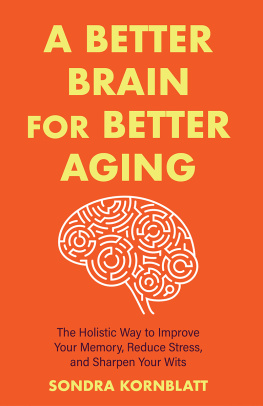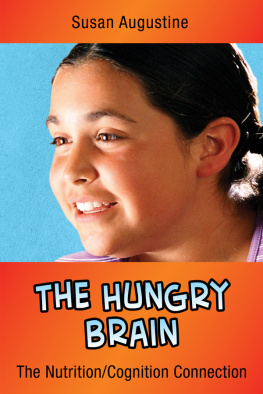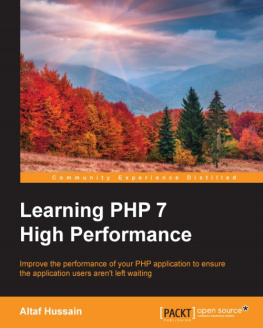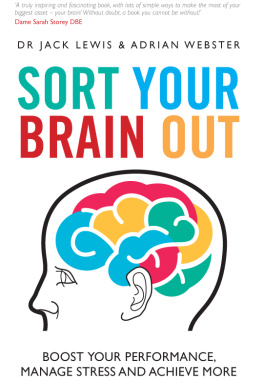Craig Hassed - Mindful Learning: Reduce Stress and Improve Brain Performance for Effective Learning
Here you can read online Craig Hassed - Mindful Learning: Reduce Stress and Improve Brain Performance for Effective Learning full text of the book (entire story) in english for free. Download pdf and epub, get meaning, cover and reviews about this ebook. year: 2014, publisher: Not Avail, genre: Home and family. Description of the work, (preface) as well as reviews are available. Best literature library LitArk.com created for fans of good reading and offers a wide selection of genres:
Romance novel
Science fiction
Adventure
Detective
Science
History
Home and family
Prose
Art
Politics
Computer
Non-fiction
Religion
Business
Children
Humor
Choose a favorite category and find really read worthwhile books. Enjoy immersion in the world of imagination, feel the emotions of the characters or learn something new for yourself, make an fascinating discovery.

- Book:Mindful Learning: Reduce Stress and Improve Brain Performance for Effective Learning
- Author:
- Publisher:Not Avail
- Genre:
- Year:2014
- Rating:3 / 5
- Favourites:Add to favourites
- Your mark:
- 60
- 1
- 2
- 3
- 4
- 5
Mindful Learning: Reduce Stress and Improve Brain Performance for Effective Learning: summary, description and annotation
We offer to read an annotation, description, summary or preface (depends on what the author of the book "Mindful Learning: Reduce Stress and Improve Brain Performance for Effective Learning" wrote himself). If you haven't found the necessary information about the book — write in the comments, we will try to find it.
Craig Hassed: author's other books
Who wrote Mindful Learning: Reduce Stress and Improve Brain Performance for Effective Learning? Find out the surname, the name of the author of the book and a list of all author's works by series.
Mindful Learning: Reduce Stress and Improve Brain Performance for Effective Learning — read online for free the complete book (whole text) full work
Below is the text of the book, divided by pages. System saving the place of the last page read, allows you to conveniently read the book "Mindful Learning: Reduce Stress and Improve Brain Performance for Effective Learning" online for free, without having to search again every time where you left off. Put a bookmark, and you can go to the page where you finished reading at any time.
Font size:
Interval:
Bookmark:
CHAPTER 1
If the first question was What is education? then the second has to be What is mindfulness? because, after all, this is a book about mindful education. Mindfulness is both old and new: old in the sense that the worlds great wisdom traditions have used various meditative or contemplative practices for millennia; and new in the sense that the world has all of a sudden discovered mindfulness. Over the last ten to twenty years there has been a veritable explosion of research on mindfulness-based approaches for diverse endeavours such as enhancing mental and physical health, education, sport and leadership training.
The importance of attention is not a new idea. In 1890, William James wrote the first classic textbook on psychology in which he stated:
James recognised the importance of being able to focus attention as the ultimate education and as underpinning the development of judgement, character and will. Unfortunately, by the time James wrote this the West had largely lost touch with contemplative roots, so meditation wasnt widely known about or used. Hence the importance of attention in Western psychology remained largely a footnote for another century, but recently things have changed rather dramatically.
A simple way of defining mindfulness is as a mental discipline aimed at training attention. There are also other aspects, for example:
- utilising the senses upon which to train the attention
- engaging the mind in the present moment
- fostering self-control through non-attachment to transitory experiences such as thoughts, feelings and sensations
- encouraging an attitude of openness and acceptance, or being non-judgmental about such transitory experiences
- cultivating equanimity and stillness by being unmoved by, or less reactive to, moment-to-moment experience.
Formally training attention in this way is generally called mindfulness meditation. The term meditation can evoke attitudes, assumptions and stereotypical notions. It can also bring with it certain unhelpful expectations, such as being able to blank out ones mind or getting rid of thoughts.
There is nothing particularly Eastern or Western about mindfulness or meditation. The present moment, the mind, the body and attention dont have an east or a west. If we go back to the roots of the words for meditation they refer to familiarisation and cultivation. Through meditation we familiarise ourselves with what is rather than the imaginary mental projections and habitual ways of thinking and acting that generally shape and potentially distort experience. Mindfulness cultivates present-moment attention or focus and an attitude of acceptance (rather than reactivity) of moment-by-moment experience. Non-reactivity doesnt mean not responding, it just means that we dont feel compelled to react without choice and discernment.
Mindfulness is not just about meditation; it is also a way of living with awareness. If, for example, we say that a teacher is mindful of a child playing, or a surfer is mindful of the waves, then we mean that he or she is present to whatever is most relevant at that moment and what they are experiencing. Attention regulation is the psychologists way of saying paying attention. It has a few elements:
- to know where the attention is
- to prioritise where the attention needs to be
- for the attention to go there and stay there.
It is surprising how often we are not aware of where our attention is. For example, a student is sitting at his desk studying and then realises he has somehow or other wound up on Facebook again. He didnt see it happen or make a conscious decision to go on Facebook, it just happened all by itself. Another 20 minutes wasted! Another example is a six-year-old child wanting to show her mother something she has made. The mother is mouthing words as if she is interested but is really thinking about how she is going to fit in a whole lot of tasks before going to work. The child knows her mother is not paying attention and says, Mummy, looooook! Her mother replies, I am looking. Yes, thats very interesting dear, now go and put on your shoes. The child is right, of courseher mother wasnt really looking or listening but she wasnt intentionally telling a lie either because she didnt realise she wasnt really looking. Unconsciously, the child is being taught two things by her mother. First, in order to get an adults attention you have to make a lot of noise. Second, the parent is modelling inattention and multitasking. Children pick this up early so we shouldnt be surprised that pretty soon they arent listening to their parents either. Although we may not notice, distraction is happening all the timewhen reading, when driving, when watching the television, or when eating.
Prioritising where the attention needs to be is an important next step. At any given moment there will be a number one priority as far as our attention is concerned. The priority may change, even in a split second, but at any given moment, when engaged in any activity, there is a central or primary focus for the attention. For example, there might be something very interesting on the radio but when driving the car the attention really needs to be primarily with whats happening on the road. When having a conversation with someone then they are the priorityif theyre not then you should excuse yourself and attend to your priority rather than pretending to listen. When a teacher is teaching, the most important thing at that moment is the class. When were reading an exam paper then that paper is the most important thing. If we dont pay attention we will answer the question we thought we read, which could be very different to the one actually written on the page. Inattention comes at a cost.
For the attention to be focused on what is relevant and to stay there sounds simple, but its not easy. There are all sorts of things in our internal and external environments competing for our attention. The irrelevant things are distracters and the extent to which they influence focus is known as distracter influence. If were sitting at our desk studying and find ourselves getting angry because we cant get the attention off the noise coming from the television in the next room, then we are not dealing with distracter influence very well. The more we try to block out distractions, the more our attention goes to them and the more intrusive they are. Attention also gets fixated on the stream of thoughts going through the mind, such as, I cant focus or Im so stupid or I cant stand this until we cant pay attention to anything but the distraction!
The trick is not to try to block out anything but simply to be more interested in one thing rather than the other. When the attention wanders, as it inevitably will, gently go back to the main priority. If we practise cultivating this during daily meditation then it will be a lot easier to do in our day-to-day life.
When were not paying attention the mind slips into whats called default mode. Whether we call it worry, negative self-talk, rumination, daydreaming or simply being away with the birds, this incessant thinking is behind our inability to attend. Mindfulness is not a distraction from our worries. On the contrary: anxiety, negativity, anger and fear are distractions from life. Unless we become aware of the presence and effect of unmindfulness we have little choice about whether or not to engage in it. To be free of it we must first be aware of it.
Next pageFont size:
Interval:
Bookmark:
Similar books «Mindful Learning: Reduce Stress and Improve Brain Performance for Effective Learning»
Look at similar books to Mindful Learning: Reduce Stress and Improve Brain Performance for Effective Learning. We have selected literature similar in name and meaning in the hope of providing readers with more options to find new, interesting, not yet read works.
Discussion, reviews of the book Mindful Learning: Reduce Stress and Improve Brain Performance for Effective Learning and just readers' own opinions. Leave your comments, write what you think about the work, its meaning or the main characters. Specify what exactly you liked and what you didn't like, and why you think so.







